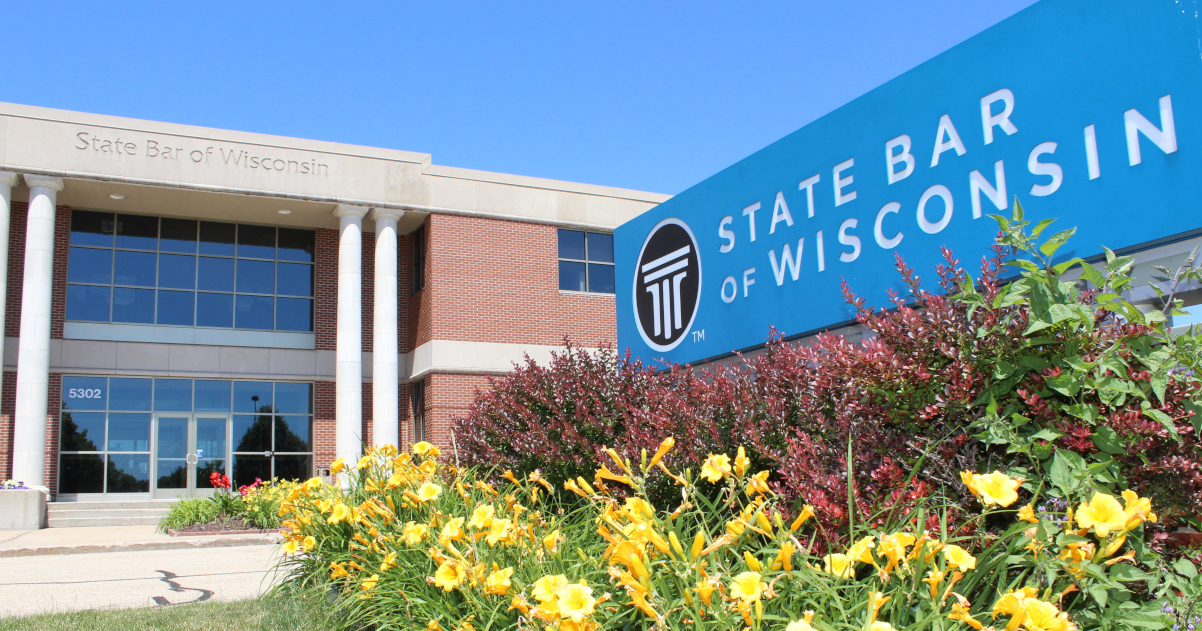
Updated July, 22, 2025
July 16, 2024 – The State Bar of Wisconsin has successfully resolved a federal lawsuit challenging its Leadership Academy and Leadership Summit programs, which were the target of a legal challenge that alleged the programs used race and ethnicity to select participants.
Ending protracted litigation, the State Bar has entered a settlement agreement with the plaintiff, State Bar member Daniel Suhr.
“We are pleased to have reached an amicable agreement that resolves the outstanding litigation,” said Immediate Past State Bar President Ryan Billings.
“With the litigation resolved, the State Bar looks forward to continuing its service to its members and the practice of law in Wisconsin.”
Programs Will Continue
The State Bar’s G. Lane Ware Leadership Academy and the Leadership Summit aim to identify and help train emerging bar leaders. These programs will continue unencumbered.
Selected participants display leadership capabilities, demonstrate a strong commitment to the legal profession, and possess the potential to be the next generation of State Bar leaders. These programs are open to all State Bar members.
In 2023, Mr. Suhr filed a lawsuit against the State Bar in the U.S. District Court for the Eastern District of Wisconsin. The lawsuit initially claimed that the Diversity Clerkship Program – and later the Leadership Academy and the Leadership Summit – are unconstitutional because they allegedly discriminate between candidates based primarily on race.
However, all three programs invite, encourage, and accept candidates of all backgrounds, and do not select applicants based on race, ethnicity, or other immutable characteristics. The State Bar has vigorously defended these important programs.
In a partial settlement with Mr. Suhr in 2024, the State Bar
successfully preserved the Diversity Clerkship Program. Together with the new settlement, the State Bar has ensured that all three vital programs will continue unimpeded. The State Bar will continue to invite all students and members to apply.
The key terms of the settlement include:
Applying to the Leadership Academy and Leadership Summit the definition of Diversity that the Bar and Mr. Suhr mutually agreed upon in the Diversity Clerkship settlement;
Reiterating in promotional and application materials that the Diversity Clerkship, Leadership Academy and Leadership Summit programs are available to all Wisconsin law students (for the Diversity Clerkship program) and State Bar members (for the Leadership Academy and Summit); and
Ensuring that the application materials for these Programs are even clearer that candidates will not be evaluated based on immutable characteristics.
As a result of the settlement, all remaining claims in the litigation will be dismissed with prejudice.
Praising the resolution of the lawsuit, which largely unfolded during his tenure, Immediate Past State Bar President Billings stated: “The State Bar provides vital services to its 25,000 members and is steadfast in its efforts to advance the practice of law in Wisconsin. The Bar is pleased that this settlement permits it to focus all its efforts on these critical activities without the unnecessary distraction and expense of ongoing litigation.”
All Members Continue to be Welcome
Current State Bar President Dan Gartzke, who took office July 1, added additional comments in a recent Milwaukee Journal Sentinel article, noting the settlement doesn’t really change what the State Bar is doing in practice because its leadership programs are not race-based, contrary to the allegations that they are.
"People have different definitions and perspectives about the term 'DEI' and, unfortunately, the term is often used for political purposes,” Gartzke said.
“Some view DEI solely as a race-based concept and now challenge any program or effort they think, even if incorrectly, is using race to make selection or hiring decisions.
“But for others, including the State Bar of Wisconsin, creating a culture where everyone feels welcome has always been the driving force behind our programs. Casting a wide net and including everyone, all members, is not against the law.
"The State Bar leadership programs are intended to find and train the next generation of leaders, and we will continue to do that with clarifications that really don't change anything in practice. The settlement was merely a confirmation of what we are already doing, in terms of inviting all members to take part in the opportunities the State Bar provides, despite how others may try to spin it. For the State Bar, that is a win."
